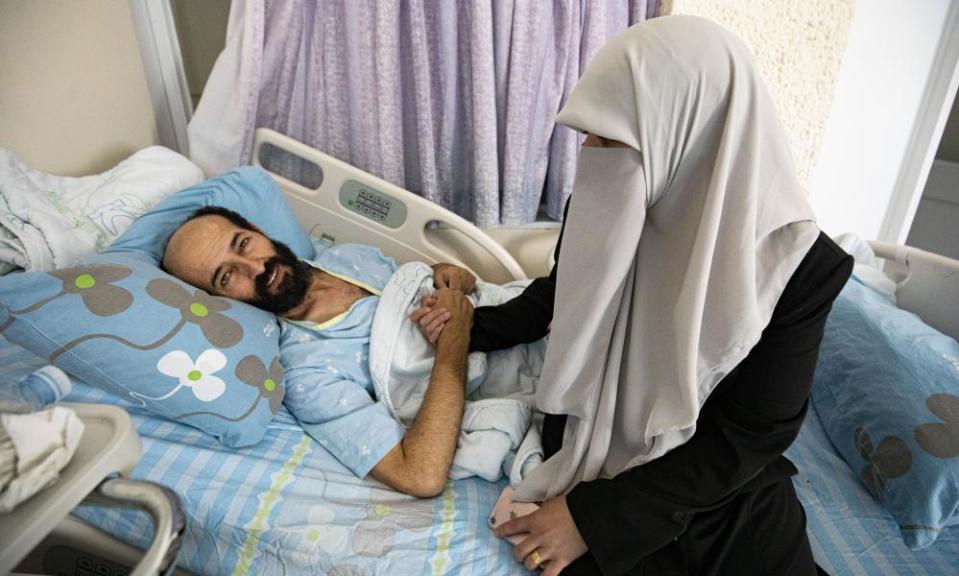Hunger-striking Palestinian close to death, family says

A Palestinian man who is approaching 90 days without eating in protest against Israel’s extensive use of detention without charge is on the brink of death, his family and human rights groups have warned.
Maher al-Akhras, 49, from the occupied West Bank, has been under administrative detention since late July, a policy that allows authorities to hold people indefinitely without trial, sometimes for years.
As of August, more than 350 Palestinians were being held in administrative detention, according to the Israeli human rights organisation B’Tselem.
The country’s internal security services claim Akhras is part of Islamic Jihad, Islamist extremists who call for Israel’s destruction, and has been arrested five times in the past for his “activism” with the militant group. Akhras denies the accusations.
Tasbeeh al-Akhras, one of the detainee’s six children, said doctors at Israel’s Kaplan Medical Center have warned the family that her father faces organ failure and will soon die.

“His situation is critical, he is in continuous pain,” she said. “He asked to be moved to a Palestinian hospital so he could stop his strike, but the Israelis refused. Freedom is the only way to stop his strike … He should be with us.”
Akhras’s lawyer, Ahlam Haddad, said she had petitioned Israel’s high court to release him. The court declined the application but agreed not to extend his detention beyond the end of November, a concession Akhras rejected.
A doctor who visited Akhras on Friday said he was lucid but confused and unable to move his legs, stand or change position in bed. His vision and hearing are also deteriorating, and he has rejected attempts to conduct medical testing and monitoring.
“Nobody knows what is happening inside his body,” said Haddad.
Four Israeli and Palestinian rights groups, including the Addameer Prisoner Support and Human Rights Association and Physicians for Human Rights Israel, called for Akhras’s release in a letter this week.
They said international medical consensus on hunger strikes indicated he might die any day. “He has confirmed that should he lose consciousness, he does not want to receive any medical intervention,” the groups said.
Anat Matar, a Tel Aviv University philosophy professor who coordinates the Israeli Committee on Palestinian Prisoners advocacy group, said several compromises had been attempted. Still, Akhras remains insistent on being moved to the West Bank.
“We and his close family and friends want to support him in his principled struggle. On the other hand, it is really hard,” she said. “The point for us is to protest administrative detention. What he wants is to move the discussion from his own case to the general one, and that is why he pays with his own life.”

